2019 - 2020: Facing the Shoah: Trauma, Memory, Resilience
Recorded events are available via:
October 3: Learning from the Germans: Race and the Memory of Evil – with Susan Neiman
Sponsored by Laurayne Ratner
With support from the Philosophy Department
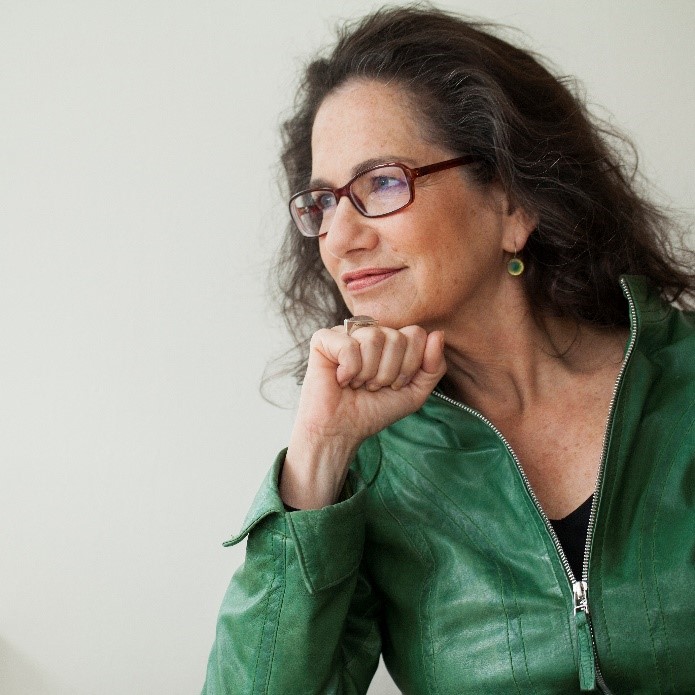
As an increasingly polarized America fights over the legacy of racism, Susan Neiman asks what we can learn from the Germans about confronting the evils of the past. In the wake of white nationalist attacks, the ongoing debate over reparations, and the controversy surrounding Confederate monuments and the contested memories they evoke, her new book Learning from the Germans delivers an urgently needed perspective on how a country can come to terms with its historical wrongdoings. Neiman earned her Ph.D. in philosophy from Harvard University and has taught at the Free University of Berlin, Yale University, and Tel Aviv University. Since 2000 she has been the director of the Einstein Forum in Potsdam, Germany. A frequent commentator on current events, she is the author of numerous books including Moral Clarity: A Guide for Grown-Up Idealists and of the contemporary philosophical classic Evil in Modern Thought. In 2014 she was the recipient of the International Spinoza Prize.
October 24: Racism in German and American Cinema of the Twenties: From The Ancient Law to The Jazz Singer – with Charles Musser
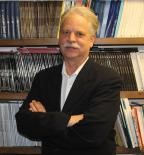 The problematic of assimilation is central to modern Jewish history. In E. A. Dupont’s silent film The Ancient Law (1923), the Orthodox Jew Baruch Mayer leaves Galicia for Vienna, where he pursues a career in acting. The Jazz Singer (1927), Alan Crosland’s pioneering sound film, is a loose adaptation of The Ancient Law with a twist. The film’s main character is played by the American Jewish actor Al Jolson, who performs in blackface. Initially praised by many African-Americans, The Jazz Singer has recently been disparaged as racist. In this lecture Professor Charles Musser addresses the historical and the contemporary perspectives on both films. He situates the two films in the wider context of the cinema of the 1920s, and he considers how each film addresses antisemitism as well as the burning question of the history of blackface as a theatrical convention. Musser is a professor of American Studies, Film & Media Studies and Theatre Studies at Yale University and the author of numerous articles and books including the prize-winning The Emergence of Cinema: The American Screen to 1907.
The problematic of assimilation is central to modern Jewish history. In E. A. Dupont’s silent film The Ancient Law (1923), the Orthodox Jew Baruch Mayer leaves Galicia for Vienna, where he pursues a career in acting. The Jazz Singer (1927), Alan Crosland’s pioneering sound film, is a loose adaptation of The Ancient Law with a twist. The film’s main character is played by the American Jewish actor Al Jolson, who performs in blackface. Initially praised by many African-Americans, The Jazz Singer has recently been disparaged as racist. In this lecture Professor Charles Musser addresses the historical and the contemporary perspectives on both films. He situates the two films in the wider context of the cinema of the 1920s, and he considers how each film addresses antisemitism as well as the burning question of the history of blackface as a theatrical convention. Musser is a professor of American Studies, Film & Media Studies and Theatre Studies at Yale University and the author of numerous articles and books including the prize-winning The Emergence of Cinema: The American Screen to 1907.
The lecture is followed by a panel discussion moderated by Frank Mecklenburg (Leo Baeck Institute New York) and features Deborah Hertz (UC San Diego), Paul Lerner (USC), and Cynthia Walk (emeritus UC San Diego).
Co-sponsored by The Leo Baeck Institute – New York | Berlin. This event is part of the Year of German-American Friendship, initiated by the German Federal Foreign Office and the Goethe-Institut, and supported by the Federation of German Industries (BDI). This event is part of the Year of German-American Friendship.
January 22: “The Dandelions Call To Me”: The Living History of Terezin – with Cheryl Rattner, Steven Schindler, Jacqueline Gmach, Yale Strom, Jeff Pekarek, et al.
Sponsored by Judi Gottschalk
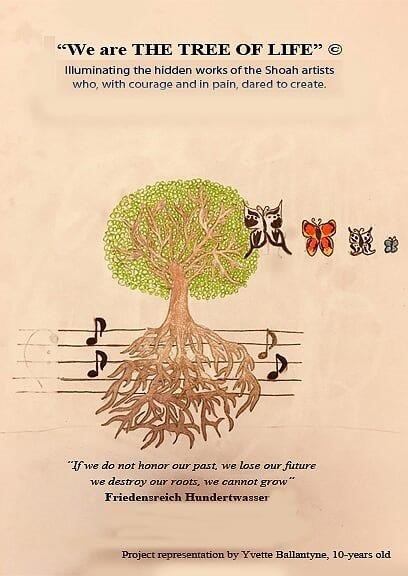 Terezin (Theresienstadt) was unique among Nazi ghettos and camps. In part intended as a showcase of German benevolence toward the Jews, the Czech garrison town boasted a profusion of cultural activities encompassing music, visual arts, and poetry. How do we understand this extraordinary creativity which continues to fascinate and puzzle? At this special event involving members of the community, we celebrate the remarkable legacy of Terezin. In the spirit of We are THE TREE OF LIFE, author and educator Jacqueline Gmach’s forthcoming tribute to the writers and artists who courageously dared to create, participants and audience reflect on the regenerative power of art in the face of oppression and persecution, thereby illuminating a history that lives on.
Terezin (Theresienstadt) was unique among Nazi ghettos and camps. In part intended as a showcase of German benevolence toward the Jews, the Czech garrison town boasted a profusion of cultural activities encompassing music, visual arts, and poetry. How do we understand this extraordinary creativity which continues to fascinate and puzzle? At this special event involving members of the community, we celebrate the remarkable legacy of Terezin. In the spirit of We are THE TREE OF LIFE, author and educator Jacqueline Gmach’s forthcoming tribute to the writers and artists who courageously dared to create, participants and audience reflect on the regenerative power of art in the face of oppression and persecution, thereby illuminating a history that lives on.
The main event is preceded by an account of the Butterfly Project, a San Diego-based initiative launched to commemorate every child lost in the Holocaust. Co-founder and CEO Cheryl Rattner Price introduces the genesis and scope of the project, while the second-generation survivor Steven Schindler offers a look at its recent impact in Cottbus, Germany, the town where his father was born.
February 19: Transmitted Wounds: Media and the Mediation of Trauma – with Amit Pinchevski
With support from the Communications Department
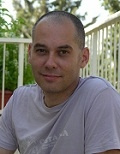 In his new book Transmitted Wounds, published by Oxford University Press in 2019, the Israeli communications scholar Amit Pinchevski explores the ways media technology shapes the social life of trauma both clinically and culturally. Drawing on a number of case studies such as the radio broadcasts of the Eichmann trial, the videotaping of Holocaust survivor testimonies, and the recent use of digital platforms for holographic witnessing, he demonstrates how the technological mediation of trauma informs the traumatic condition itself. His thought-provoking insights have crucial implications for media studies, memory studies, and the burgeoning field of digital humanities and are relevant for anyone interested in the moral aspects of witnessing and the future of Holocaust memory. Pinchevski is an Associate Professor in the Department of Communication and Journalism at The Hebrew University of Jerusalem and the author of By Way of Interruption: Levinas and the Ethics of Communication (2005). He has coedited two books on media ethics and media witnessing.
In his new book Transmitted Wounds, published by Oxford University Press in 2019, the Israeli communications scholar Amit Pinchevski explores the ways media technology shapes the social life of trauma both clinically and culturally. Drawing on a number of case studies such as the radio broadcasts of the Eichmann trial, the videotaping of Holocaust survivor testimonies, and the recent use of digital platforms for holographic witnessing, he demonstrates how the technological mediation of trauma informs the traumatic condition itself. His thought-provoking insights have crucial implications for media studies, memory studies, and the burgeoning field of digital humanities and are relevant for anyone interested in the moral aspects of witnessing and the future of Holocaust memory. Pinchevski is an Associate Professor in the Department of Communication and Journalism at The Hebrew University of Jerusalem and the author of By Way of Interruption: Levinas and the Ethics of Communication (2005). He has coedited two books on media ethics and media witnessing.
Link: Transmitted Wounds
April 15: Yiddish Glory: The Lost Songs of World War II – with Anna Shternshis and Psoy Korolenko [Cancelled]
Lou Dunst Memorial Lecture
This event has been canceled in accordance with Governor Gavin Newsom’s stay-at-home executive order issued March 19, 2020. All spring quarter events must be postponed or cancelled until further notice due to the potential transmission of Covid-19, or Coronavirus.
Your involvement is very important to us, however, our first priority is the health and safety of our students, faculty, staff and visitors. For campus-wide updates, please visit the UC San Diego Coronavirus website.
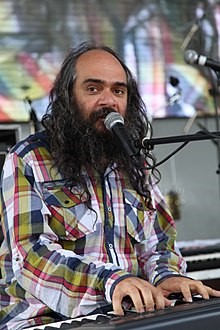 At the height of the Second World War, a team of Soviet ethnomusicologists embarked on a seemingly quixotic labor: collecting recently written songs addressing the Holocaust. Lost until the early 1990s, the songs were rediscovered and recorded with an ensemble of recognized soloists. Thanks to the painstaking labor of Anna Shternshis and the talent of Psoy Korolenko, audiences worldwide can now enjoy and reflect upon this treasure trove of songs that offer a precious glimpse into an unfolding tragedy and the artistic reaction to it. Shternshis is the Al and Malka Green Professor of Yiddish and Diaspora Studies at the University of Toronto and the author of, most recently, When Sonia Met Boris: An Oral History of Jewish Life under Stalin (Oxford University Press, 2017). Psoy Korolenko is a prominent songwriter and singer and a philologist and critic who holds a Ph.D. in Russian literature. In 2018 their joint project Yiddish Glory was nominated for a Grammy.
At the height of the Second World War, a team of Soviet ethnomusicologists embarked on a seemingly quixotic labor: collecting recently written songs addressing the Holocaust. Lost until the early 1990s, the songs were rediscovered and recorded with an ensemble of recognized soloists. Thanks to the painstaking labor of Anna Shternshis and the talent of Psoy Korolenko, audiences worldwide can now enjoy and reflect upon this treasure trove of songs that offer a precious glimpse into an unfolding tragedy and the artistic reaction to it. Shternshis is the Al and Malka Green Professor of Yiddish and Diaspora Studies at the University of Toronto and the author of, most recently, When Sonia Met Boris: An Oral History of Jewish Life under Stalin (Oxford University Press, 2017). Psoy Korolenko is a prominent songwriter and singer and a philologist and critic who holds a Ph.D. in Russian literature. In 2018 their joint project Yiddish Glory was nominated for a Grammy.
May 6: Sexual Barter in Times of Genocide: Reflections on Sexual Violence, Agency, and Sex Work – with Anna Hájková [Cancelled]
This event has been canceled in accordance with Governor Gavin Newsom’s stay-at-home executive order issued March 19, 2020. All spring quarter events must be postponed or cancelled until further notice due to the potential transmission of Covid-19, or Coronavirus.
Your involvement is very important to us, however, our first priority is the health and safety of our students, faculty, staff and visitors. For campus-wide updates, please visit the UC San Diego Coronavirus website.
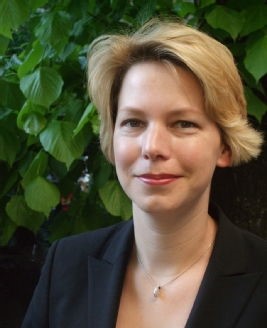 What is everyday life, and how is it experienced in extremis? This is the broader question that animates the research of Anna Hájková, an associate professor of Modern Continental European History at the University of Warwick, UK. In this talk, Dr Hájková examines sex work, agency, sexual violence, and coercion of Jewish women and men in concentration camps, ghettos, and in hiding. The author of many articles and of the prize-winning book manuscript The Last Ghetto: An Everyday History of Theresienstadt forthcoming with Oxford University Press, Hájková is currently working on a project titled Boundaries of the Narratable: Transgressive Sexuality and the Holocaust, a pioneering study of the reasons behind the narrative erasures of lesbians and gays who were deported as Jews and who subsequently vanished from the historical record.
What is everyday life, and how is it experienced in extremis? This is the broader question that animates the research of Anna Hájková, an associate professor of Modern Continental European History at the University of Warwick, UK. In this talk, Dr Hájková examines sex work, agency, sexual violence, and coercion of Jewish women and men in concentration camps, ghettos, and in hiding. The author of many articles and of the prize-winning book manuscript The Last Ghetto: An Everyday History of Theresienstadt forthcoming with Oxford University Press, Hájková is currently working on a project titled Boundaries of the Narratable: Transgressive Sexuality and the Holocaust, a pioneering study of the reasons behind the narrative erasures of lesbians and gays who were deported as Jews and who subsequently vanished from the historical record.
June 3: Trauma, Memory, and the Art of Survival – with Gabriella Y. Karin [Cancelled]
This event has been canceled in accordance with Governor Gavin Newsom’s stay-at-home executive order issued March 19, 2020. All spring quarter events must be postponed or cancelled until further notice due to the potential transmission of Covid-19, or Coronavirus.
Your involvement is very important to us, however, our first priority is the health and safety of our students, faculty, staff and visitors. For campus-wide updates, please visit the UC San Diego Coronavirus website.
Sponsored by Phyllis and Daniel Epstein
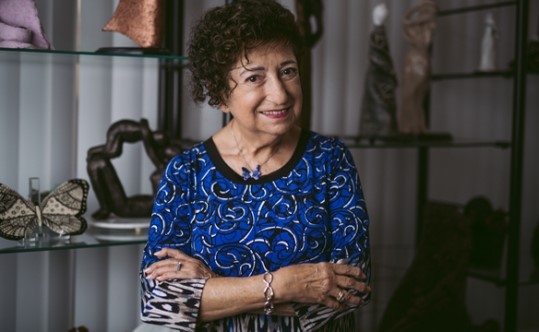 How does artistic creativity aid Holocaust survivors in processing memories of oppression, persecution, and loss? This question is not only of interest to psychologists concerned with resilience; it is also raised, at least implicitly, by many Holocaust survivor testimonies. The life story of Gabriella Y. Karin offers important insight into trauma and the fraught means by which it may be worked through. As an eleven-year old, Gabriella was placed in a Catholic convent in Bratislava, Slovakia where she remained for three years, physically safe but separated from her parents. Although her family survived the war, Karin did not emerge unscathed from hiding. Suppressed memories of her past came flooding back once she began to fashion sculptures dealing with the Holocaust. Despite the emotional difficulties associated with revisiting her youth, Karin regularly talks in schools and synagogues. She is a docent at the Los Angeles Museum of the Holocaust and participates in the Righteous Conversations Project which unites survivors and students through the medium of art.
How does artistic creativity aid Holocaust survivors in processing memories of oppression, persecution, and loss? This question is not only of interest to psychologists concerned with resilience; it is also raised, at least implicitly, by many Holocaust survivor testimonies. The life story of Gabriella Y. Karin offers important insight into trauma and the fraught means by which it may be worked through. As an eleven-year old, Gabriella was placed in a Catholic convent in Bratislava, Slovakia where she remained for three years, physically safe but separated from her parents. Although her family survived the war, Karin did not emerge unscathed from hiding. Suppressed memories of her past came flooding back once she began to fashion sculptures dealing with the Holocaust. Despite the emotional difficulties associated with revisiting her youth, Karin regularly talks in schools and synagogues. She is a docent at the Los Angeles Museum of the Holocaust and participates in the Righteous Conversations Project which unites survivors and students through the medium of art.
The main event is preceded by a talk featuring Rose Schindler, a Czechoslovakian Jew who was deported to Auschwitz at age 14. The recently published Two Who Survived: Keeping Hope Alive While Surviving the Holocaust, written by M. Lee Connelly, tells her story as well as the story of her husband Max.